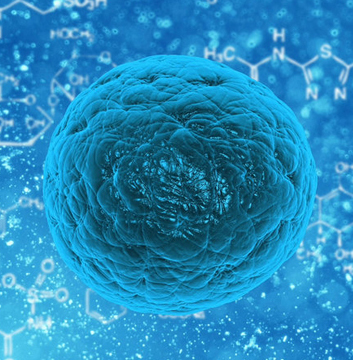
Drug resistance is a major obstacle in the treatment of cancers. In an aggressive type of pancreatic cancer, for instance, drug resistance is associated with the suppression of programmed cell death, which results in the uncontrolled growth of cancer cells.
Until recently, the process underlying this phenomenon had remained unknown. A team of researchers from Charite – Universitätsmedizin Berlin have now elucidated the way in which different factors interact in order to enable these cancer cells to survive.
They were able to show that inhibition of a key protein limits cancer growth. The researchers’ findings, which have been published in PNAS*, may herald a new treatment target for aggressive cancers.
Some types of cancer are particularly difficult to treat, due to their ability to evade existing therapies.
Pancreatic cancer is one such cancer – specifically, an aggressive subtype known as pancreatic ductal adenocarcinoma (PDAC). Every year, approximately 19,000 people in Germany develop pancreatic cancer. The most common reason for treatment resistance is the suppression of the process of programmed cell death, known as apoptosis. Targeted treatment therefore requires the use of new treatment strategies.
“In addition to identifying a new treatment target, we were able to elucidate a mechanism which enables us to circumvent cancer cell resistance. This enabled us to propose a new strategy for the treatment of particularly aggressive forms of cancer”, says PD Dr. Matthias Wirth of Charite’s Department of Hematology, Oncology and Cancer Immunology on Campus Benjamin Franklin.
Working alongside colleagues from other research organizations in Germany, the United States and the Netherlands, PD Dr. Wirth and his team undertook a detailed study of the processes involved in apoptosis. They discovered that the NOXA protein – which is a key proapoptotic factor – appears to be suppressed in particularly aggressive forms of pancreatic cancer.
The mechanism responsible for this suppression had remained unknown until now. “Our approach was therefore to identify drug candidates which might be capable of unleashing NOXA’s cancer-suppressing potential. Using an unbiased drug screening experiment to systematically test substances in genetically altered cell lines, we were able to identify one effective substance,” explains PD Dr. Wirth.
He continues: “The substance in question was an inhibitor of the transcription factor known as RUNX1, which is usually present in large quantities in patients with pancreatic cancer and is associated with an inferior prognosis.”
The researchers performed a comprehensive series of genome-wide gene expression analyses in order to identify gene activity. This enabled the researchers to show that loss of the RUNX1 gene cancels the suppression of the NOXA protein, which suggests that the RUNX1 protein prevents apoptosis, meaning it has a cancer-promoting effect.
The researchers also found that NOXA gene activity is controlled through spatial interaction with a distant, non-coding DNA sequence to which the transcription factor RUNX1 can bind. As part of a nationwide collaboration, the researchers were then able to demonstrate the same apoptosis-inducing effect of RUNX1 inhibition in both a mouse model and in organoids (cancer patient-derived, three-dimensional cell cultures). Summing up the research, PD Dr. Wirth says: “Our findings therefore direct our focus towards effective RUNX1 inhibitors as a potential new option in the treatment of pancreatic cancer.”
He adds: “We are now investigating the degree to which this newly discovered mechanism might translate to other types of cancers. Our next step will be to test more substances, in particular ones already in clinical use. We hope this will enable us to uncover potential combination therapies which would then be tested in clinical studies and ultimately expand the treatment options available to patients with cancer.”
